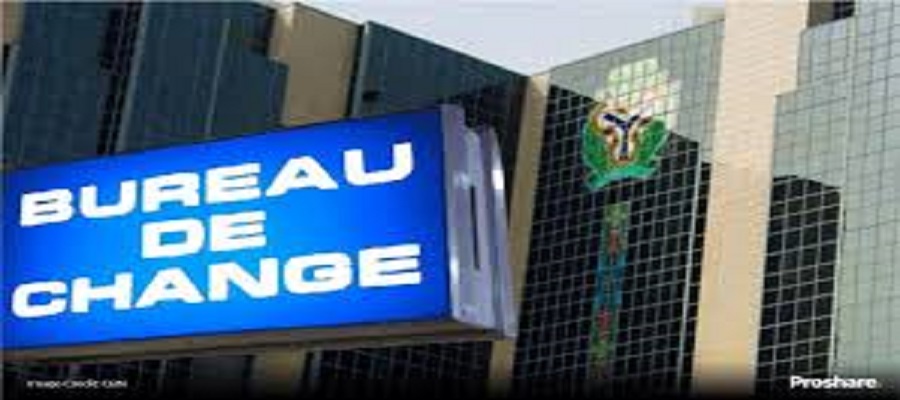E-Financial
Oil Bulls Inspired by Lower US Stockpile

By Lukman Otunuga, Senior Research Analyst, FXTM
Oil prices rose more than 1% on Wednesday after the US reported a sharp drop in crude stockpiles soothed oversupply concerns.
Speculation around OPEC+ extending production cuts coupled with easing trade tensions between the United States and China are also stimulating appetite for WTI Crude and Brent. While Oil is positioned to appreciate further amid the improving market mood, the upside is bound to face numerous obstacles down the road.
The dynamic influencing oil prices are certainly shifting from supply side to demand side factors and this continues to be reflected in the commodity’s valuation. Should US-China trade tensions make an unwelcome return and reignite fears around slowing global growth, oil will be exposed to downside shocks.
However, despite all the uncertainty, oil still remains in the black year-to-date with WTI Crude rising 28% and Brent appreciating 17%. While this is good news for emerging market energy exporters like Nigeria who heavily depend on Oil to promote economic growth, it opens the nation to external risks.
As we head into the final quarter of 2019, the outlook for oil markets will be clouded by trade developments and global growth concerns. Nigeria has already cut its forecast for its benchmark crude oil prices to $55 per barrel from $60 due to “strong indications” of an oversupplied oil market. While the cut has the potential to cushion the nation against any unexpected price shocks, it does not change the fact that oil accounts for 90% of export earnings.
Euro stumbles lower ahead of ECB meeting
Where the Euro concludes this week will be heavily influenced by what the ECB does on Thursday.
The central bank is widely expected to cut deposit rates by 10 basis points, its first cut since 2016, restart quantitative easing and a new pledge to keep rates low for longer. While this may be good news for the Eurozone economy, it is certainly negative for the Euro which remains near a 2-year low against the Dollar.
Euro bears still remain in firm control on the weekly charts thanks to fundamental and technical themes weighing heavily on the currency. A solid weekly close below 1.10 should inspire a decline towards 1.09.
E-Financial
CBN Waives 2025 Licence Renewal Fee for Bureaux de Change Operators

Central Bank of Nigeria (CBN) has waived the 2025 licence renewal fee for all bureaux de change (BDC) operators.

Jonah Onojah, director of the financial policy and regulation department, announced that the waiver took immediate effect.
“This is to inform all existing bureaux de change that further to the Regulatory and Supervisory Guidelines for Bureau De Change Operations in Nigeria, 2024, and the ongoing transition to the new BDC regulatory structure, the Central Bank of Nigeria (CBN) has approved the waiver of 2025 licence renewal fee, effective immediately,” the statement reads.
“Any bureau de change that has paid for 2025 licence renewal is hereby advised to apply to the Director, Financial Policy and Regulation Department, Central Bank of Nigeria for refund to its account from which the payment emanated.
“The CBN remains committed to fostering stability, transparency, and efficiency in the foreign exchange market while ensuring that operators align with the revised regulatory framework,” the statement said.
On May 22, 2024, CBN approved new guidelines for BDC operations to improve compliance and oversight.
In the guideline, CBN said all existing BDCs are to re-apply for a new licence according to any of the tiers or licence categories of their choice.
CBN said the guidelines are part of its efforts to re-position the BDC market to play its envisioned role in the foreign exchange market in Nigeria.
E-Financial
PalmPay is not a Loan App, says MD

PalmPay, a Mobile Money Operator and digital payment platform has reaffirmed its role as a mobile payment provider, correcting the insinuation that it is a loan App.

Chika Nwosu, Chief Executive Officer, PalmPay, speaking at a press conference in Lagos clarified that PalmPay’s core mission is to provide seamless payment solutions and financial services, not to issue loans.
This clarification became necessary against erroneous messages in some social media platforms that the PalmPay is a loan App, as well as individuals wearing PalmPay-branded clothing allegedly been involved in arresting loan defaulters, raising concerns about the company’s role in debt recovery practices.
He explained that all lending activities on its platform are conducted by third-party financial institutions leveraging its ecosystem, not PalmPay itself.
“PalmPay is not a loan App. We provide a platform for third-party financial institutions to offer their services, including loans, to our users. These institutions operate independently and comply with all regulatory requirements,” Nwosu explained.
More so, Chika Nwosu identified smartphone penetration, internet connectivity and innovative technologies as key factors that are crucial to increased access to mobile money services in Nigeria.
According to him, with smartphone penetration projected to reach 65% by 2026 as well as improved internet infrastructure, more Nigerians will be enabled to access mobile money services.
He disclosed that, with fintech companies such as PalmPay evolving through digital wallets and seamless payment gateways, accessibility to mobile money service was bound to expand soon.
He emphasized that with demand for affordability of financial services growing, more opportunities would be unlocked for PalmPay in the nearest future.
“From under 10,000 agents in 2015 to over 1.5 million agents in 2023, agent networks have become the backbone of mobile money operations in Nigeria. For this reason, we are more likely to see a sharp increase in the number of mobile money agents and merchants. Apart from that, MMOs will increasingly use artificial intelligence to improve customer experiences, such as machine learning, predictive analytics, and fraud detection,” he said.
Donald Ubeh, Head, Risk and Compliance, MLRO at PalmPay, while highlighting the impact of fintech companies such as PalmPay, explained that the coming of PalmPay has led to economic empowerment particularly for individual users and several Small and Medium Scale enterprises.
He noted that many Nigerians including bank customers have migrated their funds to PalmPay owing to convenience and accessibility it provides.
He added that mobile money operators were conceived with the aim of driving financial inclusion for the underserved and unbanked population.
According to EFInA, increasing adoption of fintech companies by Nigerians has led to increase in financial inclusion rate by 13% in 13 years.
E-Financial
Moniepoint MFB Says Rumours of N1.1Bn Theft by Hackers Malicious

Moneipoint has denied reports that Moniepoint MFB, its microfinance bank, was hacked and some N1.1 billion allegedly stolen.

Moniepoint, in a blog post said that the report, which began on social media was malicious and misleading and should be ignored.
According to the company, the alleged theft gained traction on social media, alleging that the company is facing operational challenges due to the hack.
“We categorically state that these claims are untrue, and we urge the public to disregard them in their entirety.
Moniepoint MFB has always maintained the highest standards for digital security and customer fund protection.
It stated that as a duly authorised and licensed financial institution, customer deposits with Moniepoint MFB are insured by Nigeria Deposit Insurance Corporation (NDIC), with the Central Bank of Nigeria (CBN) supervising and regulating its operations to ensure adherence to all applicable standards.

 E-Financial1 day ago
E-Financial1 day agoMoniepoint MFB Says Rumours of N1.1Bn Theft by Hackers Malicious

 General News1 day ago
General News1 day agoCourt Orders Arrest of Access Bank Acting MD, Others over Alleged Theft of Property

 Telecom1 day ago
Telecom1 day agoSERAP Drags Tinubu, Others to Court over ”Arbitrary” Telecom Tariff Hike

 E-Financial1 day ago
E-Financial1 day agoWorld Bank Urges CBN to Sustain Inflation Control Measures

 Telecom1 day ago
Telecom1 day agoFG, WIOCC Partner to Deliver Internet to 3m Homes with $10m Investment

 E-Financial1 day ago
E-Financial1 day agoZenith Bank Reinforces Commitment to Staff Wellbeing with Salary Hike and Promotions

 E-Financial1 day ago
E-Financial1 day agoSEC Warns against Transactions with Risevest, Stecs Cooperative Societies

 News1 day ago
News1 day agoARCON to Sanction Perpetrators of Misleading Adverts

























